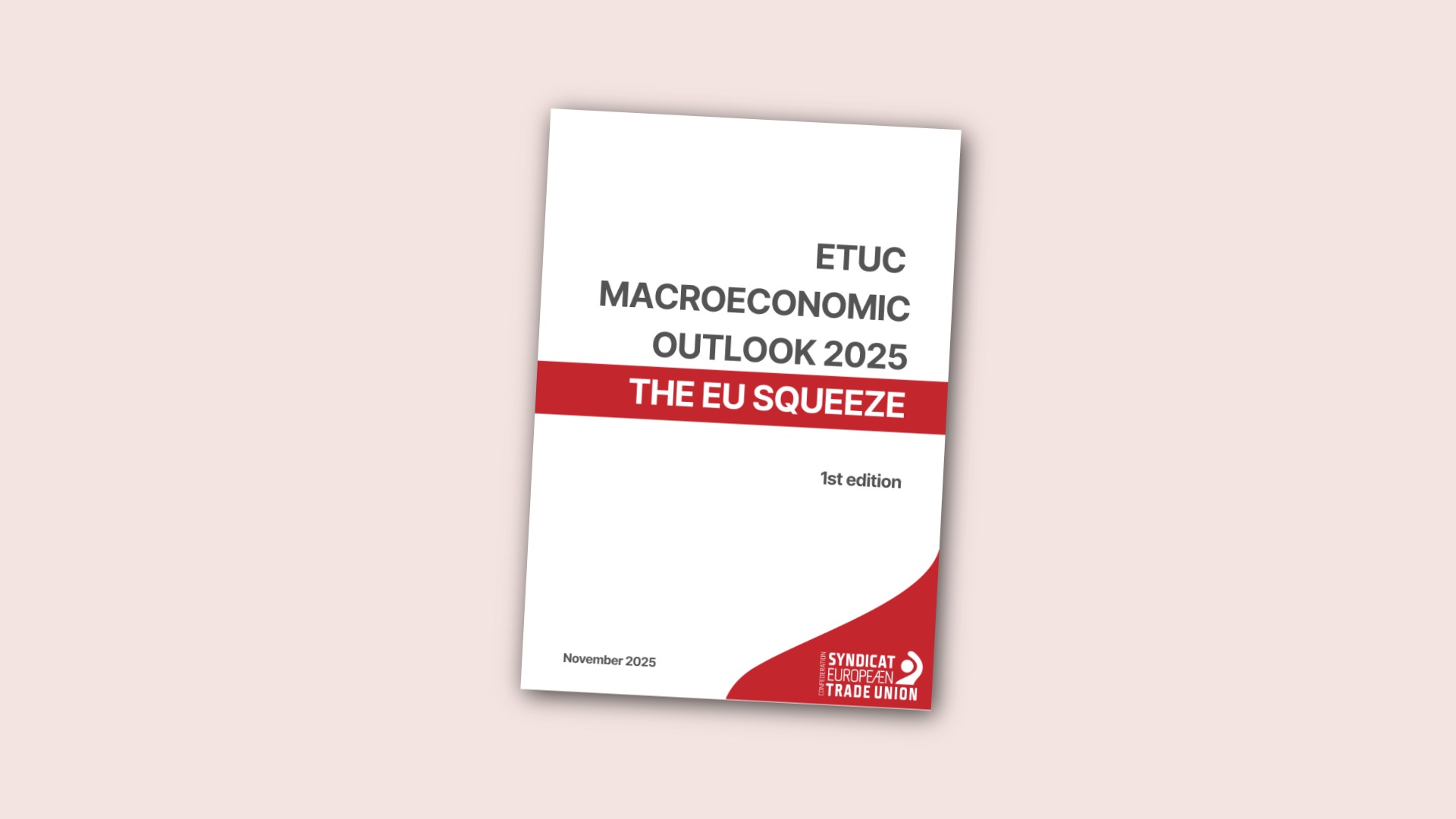
The ETUC's first edition of the Macroeconomic Outlook 2025, titled “The EU Squeeze”, offers a necessary corrective to the dominant economic narratives shaping EU policy. Published on 12 November 2025, for the Macroeconomic Dialogue, this report highlights a number of structural imbalances that have defined the post-crisis European economy and aims to equip trade unions, policymakers, and civil society with the evidence and arguments needed to shape a more equitable and sustainable EU economic model.
Why an ETUC Macroeconomic Outlook?
At a time when fiscal orthodoxy is returning to the political agenda and inequality continues to deepen, this report brings forward a macroeconomic analysis rooted in the lived realities of Europe’s workers, rather than in the abstractions of market efficiency or competitiveness metrics.
"We examine macroeconomic dynamics on the scale of a worker’s career, not the lifespan of a stock share."
Real wages have persistently lagged behind productivity gains. Housing has become increasingly unaffordable, while energy poverty and renovation Inequality expose the limits of current climate transition strategies. Meanwhile, the labour share in GDP has steadily declined, not because of economic necessity, but as a result of institutional weakening of collective bargaining, wage suppression policies, and the financialisation of the corporate sector.
By grounding its analysis in robust data and linking household-level experiences to macroeconomic outcomes, "The EU Squeeze" demonstrates that stagnating private investment, profit-led inflation, and declining social cohesion are not isolated issues, but symptoms of a broader systemic failure. Public investment, strong labour institutions, and fair income distribution emerge not only as social priorities, but as macroeconomic imperatives.
ETUC’s Outlook is a reminder that economic policy is never neutral. It reflects choices, and those choices must begin to serve people, rather than narrow interests. This document aims to equip trade unions, policymakers, and civil society with the evidence and arguments needed to shape a more equitable and sustainable EU economic model.
